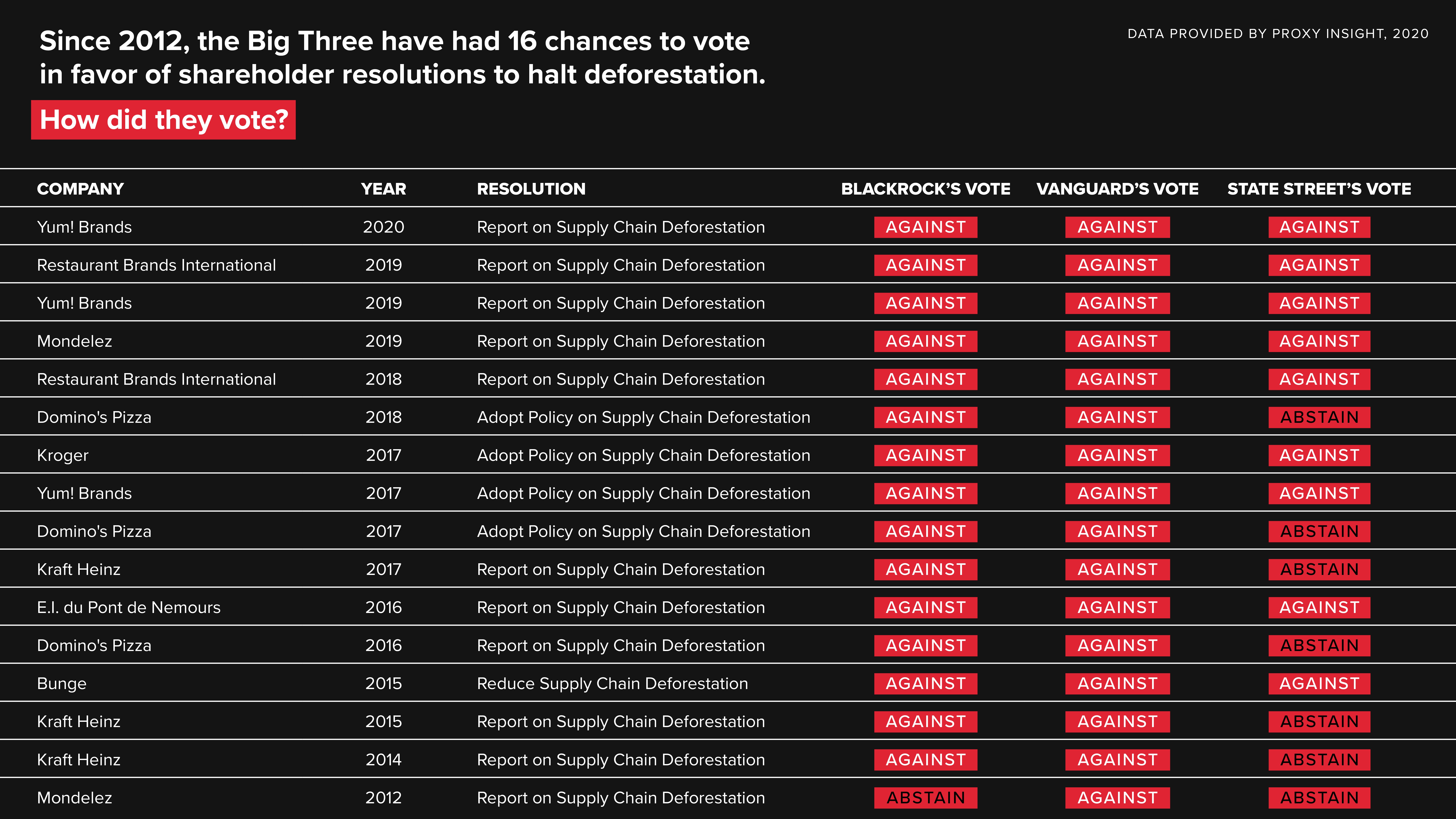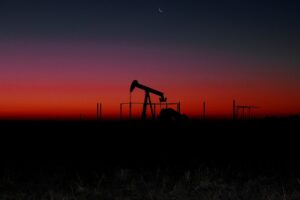
Victory Stories
Fighting for Corporate Responsibility
The world’s largest consumer goods company, Proctor & Gamble, has reaped massive profits for decades with a business model built in part on clearcutting forests and devastating communities. But October 2020, after years of pressure from a broad coalition of environmental advocacy groups and responsible investors, the company’s shareholders took a step toward overthrowing that legacy with what the Financial Times called an “investor rebellion.”
In spite of lavish spending on public relations and soaring P&G stock value, more than two thirds of P&G’s shareholders voted to require the company to assess how to increase its efforts to “eliminate deforestation and the degradation of intact forests in its supply chains.” Bloomberg called the vote a “rebuke” of the P&G board.
The surprise shareholder vote bucked a decade-long trend of large investors failing to step up for the world’s forests – but it didn’t come out of nowhere. The vote was the product of a years-long campaign demanding that the company stop using pulp from virgin boreal forests in its paper products and palm oil grown with forced labor in devastated Indonesian rainforests in its cleaning products.
Over the past two years more than 382,000 people signed a petition urging P&G to stop deforestation and intact-forest degradation for its toilet paper. Last year 135 organizations sent a letter to P&G’s CEO David Taylor regarding the company’s role in logging in the Canadian boreal forest. And throughout 2020, activists have weathered the pandemic to mount colorful protests outside the company’s Cincinnati headquarters.
The world’s largest asset manager, BlackRock, has over $18 billion invested in P&G, or 6 percent of total shares in the company, and it supported the resolution out of concern for P&G’s “reputational and operational risks.” BlackRock’s concern for P&G’s reputation was likely tied to growing concern for its own as the world’s largest investor in deforestation.
A month before the vote at P&G, Friends of the Earth released Doubling Down on Deforestation, which showed that BlackRock was one of the “Big Three” asset managers that has played a significant role in undermining corporate sustainability commitments across the 400 largest global consumer goods retailers.

As Friends of the Earth’s report rolled out, environmental and indigenous rights advocates staged demonstrations at BlackRock offices in many countries, while Democratic Senators challenged the firm for its failures to act on its promises to address climate risk. Leading up to the P&G shareholder vote, a broad coalition of groups engaged P&G’s top twenty shareholders to inform them of the profound risks associated with P&G’s supply chain, and environmental defenders from Friends of the Earth Indonesia took to YouTube to denounce human rights abuses committed by P&G’s palm oil suppliers.
What’s Next for P&G?
The investor rebellion at P&G calls for a report detailing how the company will improve its sourcing to meet sustainability goals. But the shift cannot end at a single report. As the saying goes, sunlight is the best disinfectant, and P&G needs to make sustainability disclosures standard practice.
In November, the Natural Resources Defense Council published a set of consensus demands towards a more ethical supply chain demanded by several groups, including Friends of the Earth. Our expectations of P&G include a time-bound commitment to no deforestation and no intact forest degradation across its forest commodity supply chain, full proof and public documentation that the companies’ suppliers are being given Free, Prior, and Informed Consent by affected communities and have legal permits to all concession land, a robust public grievance process, direct engagement with civil society organizations and impacted communities, and effective accountability measures to address environmental and human rights violations to make it readily apparent to suppliers how the company will respond when violations occur.
While P&G needs to reexamine its business model, shareholders also have a lot of work to do to meet the requirements of truly responsible stewardship when it comes to forests and the land rights of Indigenous Peoples and local communities. Nothing less will do.
More Victory Posts
Ways to Support Our Work

Read Latest News
Stay informed and inspired. Read our latest press releases to see how we’re making a difference for the planet.

See Our Impact
See the real wins your support made possible. Read about the campaign wins we’ve fought for and won together.

Donate Today
Help power change. It takes support from environmental champions like you to build a more healthy and just world.

